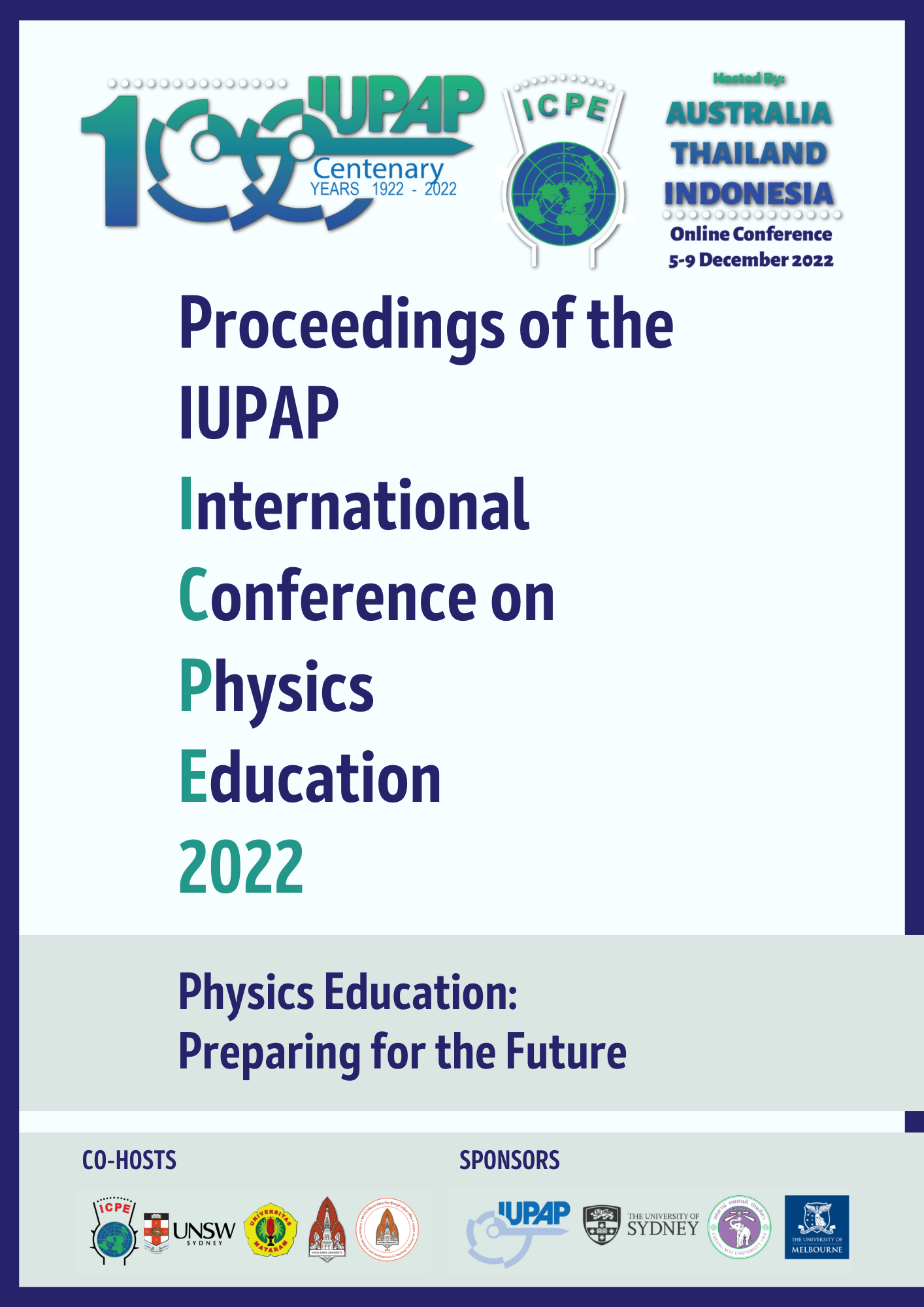Fostering a growth mindset in physics
Keywords:
growth mindset, beliefs about intelligence, intervention study, pilot studyAbstract
Students hold different beliefs about the nature of intelligence. While some believe in intelligence as a fixed trait (fixed mindset), others believe in a more malleable nature of intelligence that can be actively developed (growth mindset). These often unconsciously held beliefs can influence students’ engagement in learning and (therefore) their academic performance. Especially when facing difficulties and/or overcoming setbacks, a growth mindset is more supportive for students’ engagement. Students with a growth mindset focus on the learning process, while students holding fixed beliefs feel like they won’t ever be able to master the difficult tasks and tend to give up. Since mindsets are beliefs, they can be changed, for example, by targeted interventions to foster a growth mindset (Dweck, 1999; Yeager et al., 2019).
While most of the mindset research targets students’ general academic mindset, we focus on their physics specific beliefs. Physics is described as “challenging” and “difficult” and in Germany, a majority of students choose to drop physics as soon as possible. We designed and evaluated a physics specific mindset questionnaire, asking students not only about their beliefs about intelligence, but also about their beliefs about learning physics and a (potential) giftedness in physics. The results of this survey show: students’ physics specific mindsets change over time, without targeted interventions. While in the beginning of physics classes in middle school, a majority of students hold a growth mindset in physics, this percentage decreases drastically during the years of learning physics. The biggest mindset change is observable during the first year of physics classes: the growth mindset decreases to from 69.1% to 43.5% and the fixed beliefs about an innate giftedness in physics extend from 4.3% to 13.4% (Goldhorn et al., 2022).
Aiming to support a growth mindset in physics, we designed a subject-specific intervention based on the work/research of Yeager et al. (2016). Working on tasks about learning strategies in physics, middle school students learn implicitly about the growth mindset. Based on the knowledge of neuroplasticity, the metaphor of the brain as a muscle that builds strength through (hard) learning is used to teach the malleability of intelligence (Blackwell et al., 2007). Connecting this knowledge directly with a physics topic should support the domain-specific growth mindset. The talk focuses on a first pilot study with eight graders.
REFERENCESBlackwell, L. S., Trzesniewski, K. H., & Dweck, C. S. (2007). Implicit Theories of Intelligence Predict Achievement Across an Adolescent Transition: A Longitudinal Study and an Intervention. Child Development, 78(1), 246–263. https://doi.org/10.1111/j.1467-8624.2007.00995.x
Dweck, C. S. (1999). Self-theories: Their role in motivation, personality, and development. (S. xiii, 195). Psychology Press.
Goldhorn, L., Wilhelm, T., & Spatz, V. (2022). Domain-Specific Theories Of Intelligence: How Students’ Mindsets In Physics Change Without Interventions. Proceedings of ESERA 2021, accepted.
Yeager, D. S., Hanselman, P., Walton, G. M., Murray, J. S., Crosnoe, R., Muller, C., Tipton, E., Schneider, B., Hulleman, C. S., Hinojosa, C. P., Paunesku, D., Romero, C., Flint, K., Roberts, A., Trott, J., Iachan, R., Buontempo, J., Yang, S. M., Carvalho, C. M., … Dweck, C. S. (2019). A national experiment reveals where a growth mindset improves achievement. Nature, 573(7774), 364–369. https://doi.org/10.1038/s41586-019-1466-y
Yeager, D. S., Romero, C., Paunesku, D., Hulleman, C. S., Schneider, B., Hinojosa, C., Lee, H. Y., O’Brien, J., Flint, K., Roberts, A., Trott, J., Greene, D., Walton, G. M., & Dweck, C. S. (2016). Using design thinking to improve psychological interventions: The case of the growth mindset during the transition to high school. Journal of Educational Psychology, 108(3), 374–391. https://doi.org/10.1037/edu0000098
Downloads
Published
Issue
Section
License
Authors who publish with the Proceedings of the International Conference on Physics Education 2022 agree to the following terms:
a) Authors retain copyright and grant the journal right of first publication with the work simultaneously licensed under a Creative Commons Attribution License (https://creativecommons.org/licenses/by/4.0/) that allows others to share the work with an acknowledgement of the work's authorship and initial publication in this journal.
b) Authors are able to enter into separate, additional contractual arrangements for the non-exclusive distribution of the journal's published version of the work (e.g., post it to an institutional repository or publish it in a book), with an acknowledgement of its initial publication in this journal.
c) Authors are permitted and encouraged to post their work online (e.g., in institutional repositories or on their website) prior to and during the submission process, as it can lead to productive exchanges, as well as earlier and greater citation of published work (See The Effect of Open Access - http://opcit.eprints.org/oacitation-biblio.html).
Privacy Statement The names and email addresses entered in the Proceedings of the International Conference on Physics Education 2022 site will be used exclusively for the stated purposes of this journal and will not be made available for any other purpose or to any other party.
